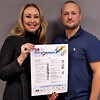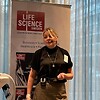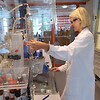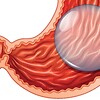Fritextsökning
Artiklar per år
Innehållstyper
-

Column: ”We need to exploit the benefits of the regulations“
You don’t need to search long on the Internet to find lists of the most innovative countries with Sweden ranking at the top. Sweden generally offers good conditions for growing new solutions, but it is also becoming increasingly clear that we
-

The government proposes fines for pharmaceutical companies that fail to notify drug shortages in time
According to a compilation from the Swedish Medicines Agency, the number of residually notified medicines increased by 54 % in Sweden last year compared to the previous year. In a bill presented by the government a number of proposals are put forward to counteract the problem.
-

Sweden is organising a large life science conference as part of the EU presidency
On 26-27 June, Sweden will host a European meeting on life science.
-

“Everyone is screaming for talent”
Attracting talent is one of the life science industry’s major future challenges, which was one of the conclusions of the panel discussion that ended the New Horizons in Biologics & Bioprocessing conference on 15 December.
-

”Alla skriker efter talang”
Att locka till sig begåvningarna är en av life science-branschens stora framtidsutmaningar. Det var en av slutsatserna i det panelsamtal som avslutade konferensen New Horizons in Biologics & Bioprocessing på torsdagen.
-

SUS prövar CAR-T-terapi mot fler cancerformer
Behandling med CAR-T-cellsterapi ska prövas för flera ovanliga former av lymfom i en klinisk studie som vid årsskiftet inleds vid Skånes universitetssjukhus (SUS).
-

ALS – When the body has given up, but the brain persists
The nerve disease ALS gradually deprives the patient of control over the muscles and, eventually, also of speech. The eyes continue to function, though, and with the help of, among other things, a Swedish-developed invention, communication with the outside world can continue. “It’s their window to the world,” says ALS researcher Caroline Ingre.
-

New study: Post-Covid symptoms are common even after mild Covid-19
According to researchers at the University of Gothenburg, loss of smell and taste, shortness of breath and chest symptoms are the most common complaints after a mild Covid infection.
-

Ny ordförande för Atlas Antibodies
Åsa Riisberg, styrelseproffs och tidigare partner i EQT, tar över ordförandeklubban i Atlas Antibodies.
-

Dags för ”ett av våra mest efterfrågade möten”
-

He is zooming in on topical preparations
According to Zelmic CEO David Sagna, topical products in drug development is a growing market, and to keep pace with the development, the company is awaiting approval for its new GMP facility.
-

Prisas för arbete mot antibiotikaresistens: “Behöver pumpa ut nya molekyler”
Professor Otto Cars får en hedersutmärkelse för sitt arbete med att bromsa utvecklingen av antibiotikaresistens – och han är långt ifrån färdig: “Vi måste tänka större, inrätta ett globalt institut där många forskare får stora resurser”.
-

Flyttar gränser för gen- och cellterapi
”Vi är bra på att vara innovativa och flytta gränser inom gen- och cellterapi och den här studien symboliserar det på ett tydligt sätt”, säger Evelina Vågesjö, vd för Ilya Pharma, om den kliniska studie som företaget startar nästa år.
-

Swedish breakthrough in Alzheimer’s: “We can finally present great data”
Treatments for Alzheimer’s disease are currently among the hottest topics in drug development. Two Swedish research companies with high ambitions and successes in the field participated in Bioscience 2022 conference at Life City in Hagastaden, Stockholm.
-

Neanderthal genes and Nobel Prize in a popular lecture at Bioscience
An inherited gene variant from our ”evolutionary cousins” – the extinct Neanderthals – may affect how our bodies break down certain drugs. “It’s only a matter of time before we actively start screening for it,” said KI researcher Hugo Zeberg when describing the study at Bioscience 2022.
-

"Are we doing business the wrong way around in the Life Science Sector?"
For the past 50 years we have created solutions for problems that we thought would solve the problems. Pharmaceuticals have created big block buster drugs which were great for that time but now we realise that these drugs were in fact only tested in white men and certainly not for patients who are older who are taking a number of medications.
-

Paxlovid kan minska risk för långtidscovid, enligt ny studie
Pfizers covidläkemedel Paxlovid minskar risken för långtidscovid, enligt en ny studie från amerikanska Department of Veterans Affairs.
-

A green nursery for biotech rooted in the Scanian soil
Red Glead has established itself as one of Lund’s largest companies in pharmaceutical development. Life Science Sweden went to Skåne and met two of the founders, Johan Evenäs and Martina Kvist Reimer.
-

Ny kraft ska leda Pharmacologs kvalitets- och certifieringsarbete
Asal Attabipour har anställts som Director of Quality Assurance och Regulatory Affairs (QA & RA) på Pharmacolog.
-

The pandemic caused a reshuffle among the world’s vaccine giants – here is the new top list
Fuelled by the pandemic, the power balance in the global vaccine market has completely changed in recent years, a survey from Fierce Pharma shows
-

Elicera i spanskt samarbete om CAR T-terapi mot skelettcancer
Elicera Therapeutics har ingått ett samarbetsavtal med ett spanskt forskningsinstitut för att stötta utvecklingen av CAR T-behandlingar för Ewings sarkom, en ovanlig form av skelettcancer.
-

She is Sweden´s new Minister of Healthcare
Today, Tuesday, Swedish Prime Minister Ulf Kristersson, who leads the Moderate Party and the centre-right coalition in Sweden, presented the government's new ministers. Christian Democrat Jakob Forssmed gets the role of Minister for Social Affairs
-

Alert from the Swedish Medicines Agency: Many complications with gastric balloons
According to the Swedish Medicines Agency, an increasing number of serious complications are being reported in procedures with gastric balloons as a method for weight loss. The authority fears significant shortcomings in the information to patients both before and after the procedure.
-

“We need to build flexible operating theatres”
Flexible operating theatres, micro-sensors on surgeons to monitor their well-being and 3D images projected onto organs to be operated on. These are a few ideas that three specialist surgeons are suggesting for the operating theatre of the future.